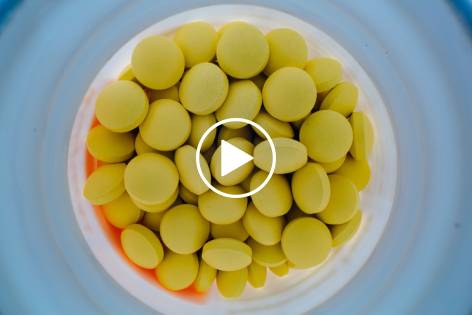
LMU – 174 Unlocking the Power of Supplements: Battling Non-Alcoholic Fatty Liver Disease (NAFLD)
Sources: Diseases (2018); Antioxidants (2018); Diseases (2018)
Lifestyle Medicine Update (September 24, 2020)
Introduction:
Non-Alcoholic Fatty Liver Disease (NAFLD) is silently spreading its roots, affecting an increasing number of individuals in our society. Once thought to primarily afflict overweight and obese individuals, NAFLD is now making inroads into the lives of non-overweight individuals, thanks in large part to dietary choices and sedentary lifestyles. In this article, we will explore the insidious nature of NAFLD and delve into the science behind dietary supplements that have shown promise in reversing this condition.
Understanding NAFLD: A Hidden Threat
NAFLD, a condition not linked to excessive alcohol consumption, is often characterized by elevated triglyceride levels and liver enzyme readings in standard blood tests following a 12-hour fast. It poses a grave risk as it can progress to liver fibrosis and cirrhosis, a life-threatening condition. Moreover, individuals with NAFLD face an elevated risk of developing primary liver cancer, specifically hepatocellular carcinoma. Early identification of NAFLD is critical, as it can be reversed through dietary and lifestyle changes, whereas no pharmaceutical drugs currently offer effective treatment. The key to managing NAFLD lies in lifestyle modifications.
The Role of Supplements in NAFLD Reversal
In addition to dietary alterations and increased endurance activities, several nutritional supplements have displayed remarkable efficacy in reversing NAFLD, based on human studies. Here, we will examine these supplements and their recommended dosages.
- Milk Thistle: The Herb that Heals
- Green Tea Extract: Harnessing the Power of EGCG
- Curcumin: The Golden Spice’s Healing Touch
- Fish Oil: The Omega-3 Savior
- Coenzyme Q10: Fuelling Cellular Health
- Vitamin E: A Shield Against NAFLD
Milk thistle, an herb with potent liver-protective properties, has taken center stage as a promising supplement for NAFLD reversal. Multiple randomized human studies have showcased its effectiveness when standardized to high silymarin content, the herb’s active ingredient. Typically, a minimum daily dosage of 210 mg of silymarin is recommended.
Green tea extract, particularly rich in epigallocatechin-3-gallate (EGCG), has emerged as another formidable player in combatting NAFLD. Various studies have demonstrated its ability to reverse key aspects of the disease with a daily dosage of 500 mg of green tea extract.
Curcumin, derived from the spice turmeric, has garnered attention for its potential in NAFLD reversal. Studies employing a daily dose of 1,000 mg of curcumin have reported positive outcomes in countering NAFLD.
Fish oil, rich in omega-3 fatty acids, has demonstrated its ability to improve NAFLD when taken at a daily dosage of 1,000 mg.
Coenzyme Q10, a vital compound for cellular energy production, has shown promise in reversing NAFLD. While animal studies support its effectiveness, one blinded human study reported beneficial results with a daily dose of 100 mg.
Vitamin E, a potent antioxidant, has also shown promise in addressing NAFLD. A typical daily dosage of 800 IU is recommended. However, it’s worth noting that current guidelines advise against using vitamin E to treat NAFLD in patients with concurrent diabetes.
A Complementary Approach to NAFLD Management
A prudent approach to leveraging these supplements in the complementary management of NAFLD would involve incorporating milk thistle, green tea extract, fish oil, and curcumin. In cases where diabetes is not a concern, the use of 800 IU of vitamin E can also be considered. However, it’s imperative to remember that individual cases vary, necessitating consultation with a healthcare professional before incorporating these supplements. It’s essential to underscore that supplements should complement, not replace, dietary and physical activity strategies proven to prevent and reverse NAFLD.
Conclusion: A Multi-Faceted Approach to NAFLD
As we navigate the rising tide of NAFLD cases, the integration of supplements into a holistic approach can provide valuable support in the battle against this stealthy condition. However, the foundation for NAFLD management remains rooted in lifestyle changes that prioritize dietary modifications and increased physical activity. These combined efforts offer a potent defence against NAFLD, its potential progression to more severe conditions, and the associated health risks.
References
- Perumpail BJ et al. Potential therapeutic benefits of herbs and supplements in patients with NAFLD (non-alcoholic fatty liver degeneration). *Disorders. 2018; 6(3):80.* [Read more](https://www.ncbi.nlm.nih.gov/pmc/articles/PMC6165515/)
- El Hadi H et al. Vitamin E as a treatment for non-alcoholic fatty liver disease: Reality or Myth? *Antioxidants (Basel). 2018; 7(1):12.* [Read more](https://www.ncbi.nlm.nih.gov/pmc/articles/PMC5789322/)
- Perrumpail BJ et al. The role of vitamin E in the treatment of NAFLD. *Disorders. 2018; 6(4):86.* [Read more](https://www.ncbi.nlm.nih.gov/pmc/articles/PMC6313719/)
Eat Smart, Live Well, Look Great,
Dr. James Meschino

Dr. James Meschino
ABOUT THE AUTHOR
Dr. James Meschino, DC, MS, ROHP, is an educator, author, and researcher having lectured to thousands of healthcare professionals across North America. He holds a Master’s Degree in Science with specialties in human nutrition and biology and is recognized as an expert in the field of nutrition, anti-aging, fitness, and wellness as well as the author of numerous books.


